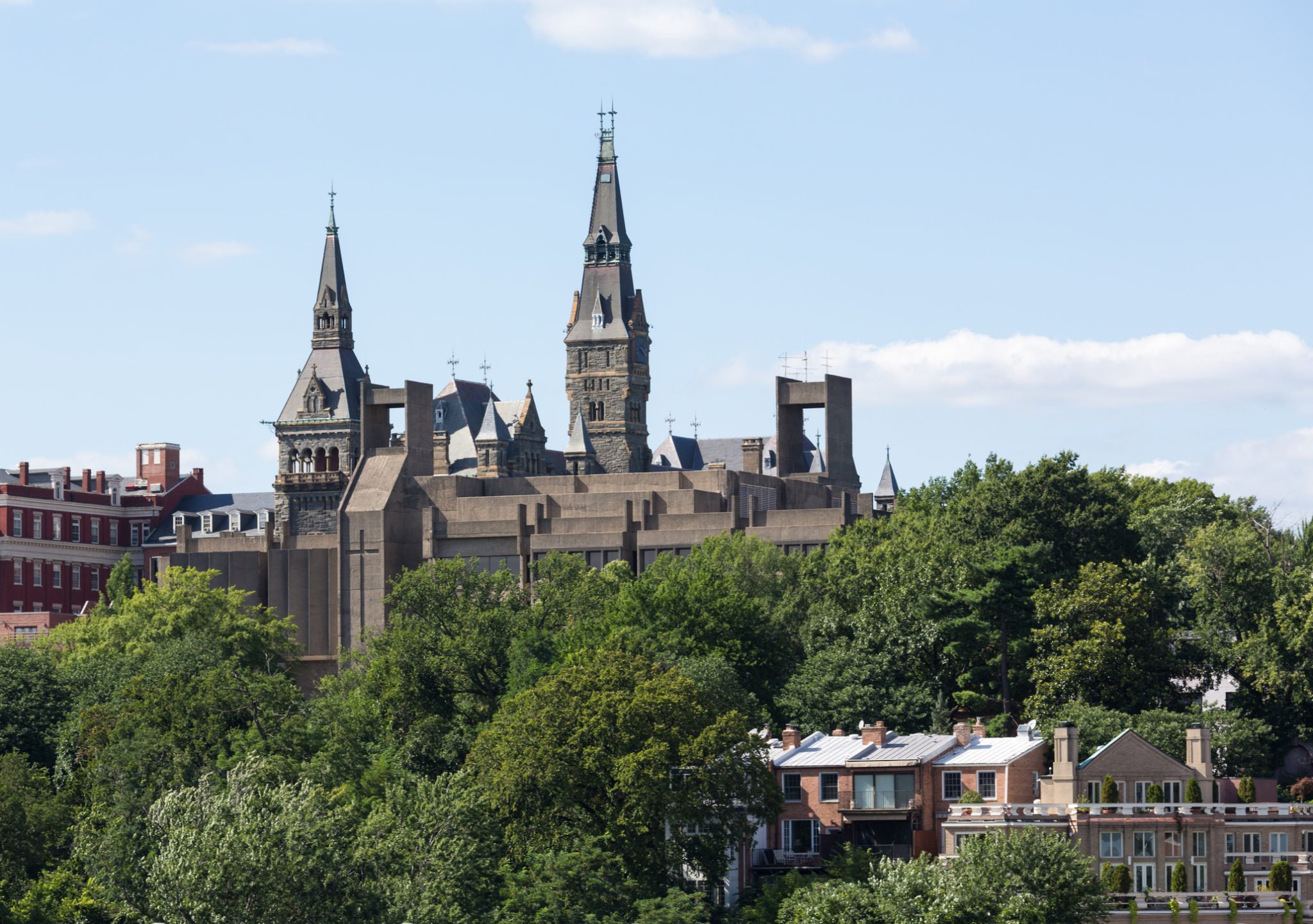Georgetown University admits some students by considering their families’ likelihood to donate to the school—as well as their proximity to political power. That allegation, sourced to a 2007 Washingtonian article, helped land the DC school a spot in a lawsuit filed against 16 elite private universities that accuses them of participating “in a price-fixing cartel that is designed to reduce or eliminate financial aid as a locus of competition, and that in fact has artificially inflated the net price of attendance for students receiving financial aid.”
The other universities named in the suit, which was filed in a federal court in Illinois, are Brown University, the California Institute of Technology, the University of Chicago, Columbia University, Cornell University, Dartmouth College, Duke University, Emory University, the Massachusetts Institute of Technology, Northwestern University, the University of Notre Dame, the University of Pennsylvania, Rice University, Vanderbilt University, and Yale University. The Wall Street Journal first reported on the lawsuit Monday.
The suit notes that the named institutions took part in a “568 Presidents Group,” named for Section 568 of the Improving America’s Schools Act of 1994. That section of the law, the group’s members contend, provides an exemption under antitrust laws that allows them to collaborate on standards for needs-blind admissions, so admissions officers do not discriminate against students who need more financial aid, for instance, in favor of students whose families can pay more. In fact, the lawsuit argues, the exemption has had the effect of favoring wealthy students.
The suit, which seeks class-action status, quotes an October 2007 Washingtonian interview with Georgetown Dean of Admissions Charles Deacon, who told reporter Alvin P. Sanoff that the school maintains “a small number of ‘development potential’ candidates”:
If Bill Gates wants his kid to come to Georgetown, we’d be more than happy to have him come and talk to us. But not all those special cases end up being people who give a lot of money. We have children of Supreme Court justices, senators, and so on apply. We may give extra consideration to them because of the opportunities that may bring.
The suit argues that Deacon, in essence, said the quiet part of admissions favoritism out loud, and that the schools’ collaboration on financial standards amount to an “an agreement, understanding, and concert of action among Defendants, the substantial terms of which are to restrain price competition relating to their provision of financial aid for students, and thereby to increase the net price of attending these institutions.” (None of Bill Gates’s three children appear to have taken Deacon up on his offer, by the way.)
Through a spokesperson, Georgetown declined to comment on the suit.



















